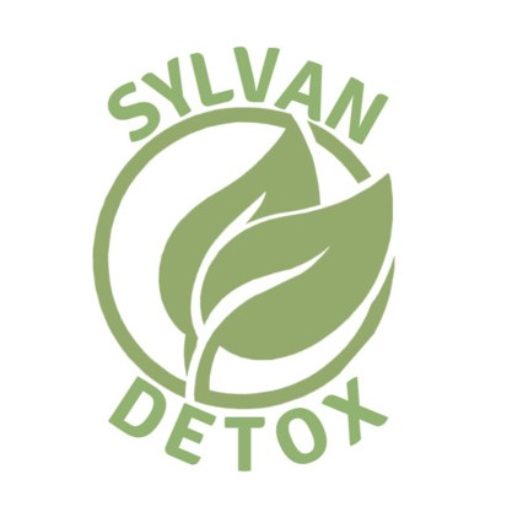Despite the dedication towards a drug-free life, the effects of withdrawal are an unavoidable and dangerous part of the process. With both physical and mental risks, it is crucial that individuals seeking detox from substances are prepared and educated. Although the effects of withdrawal cannot be ignored, being educated on what to expect and how long it may last can make a major difference in resilience.
Sylvan Detox is happy to provide some of this education to help ease any worries you have before entering the next chapter of your life. By taking time to be aware of what you will experience, you can be better prepared to push past obstacles and doubt without any surprises. Detoxing is a courageous and essential first step in taking back the life that is yours and we hope to be of service in getting you there.
If you or a loved one is suffering from any form of addiction or abuse, please call Sylvan Detox at (818) 308-3099.
What Causes Drug Withdrawal?
When the body becomes reliant on a substance, it will begin to experience both mental and physical changes. It can take as little as a few weeks for the body to develop an addiction or dependency and while these words are often used interchangeably, they are not the same.
Addiction is described as a compulsive need for and use of a substance including:
- Inability to stop using the substance
- Using the substance despite the consequences
- Neglecting social, personal, and work-related responsibilities due to drug use
Dependency refers to the bodily response and reliance on a drug for specific purposes. This is often related to medications that address chronic illness or pain and may include:
- Similar symptoms of addiction
- Development of a tolerance to the drug that creates a desire for a larger, more frequent dose
- Physical symptoms when you stop using the substance
Whether you are experiencing addiction, dependence, or both, your mind and body will encounter a significant shift when you stop using the drug.
5 Worst Drugs To Detox From
Due to the fact that some substances are more addictive than others, you should be aware of what you’re up against when detoxing from substances. Though all drugs will have some form of detox on the body, there are a few that have earned their place as the worst drugs to detox from.
- Alcohol is one of the most common and widely-accepted substances people have access to. Due to the fact that it is legal and used in everyday social situations, the risk of developing a dependency is high. The sudden stoppage of alcohol in cases of high, frequent use may result in seizures, confusion, hallucinations, and delirium—also known as delirium tremens, or DTs. In lesser cases, alcohol withdrawal may have emotional effects such as anxiety, depression, and despair. As well as physical effects including insomnia, impaired memory, tachycardia, hypertension, and slowed cognitive functions. As a result, alcohol is one of the worst drugs to detox from and medical detox is highly recommended.
- Benzodiazepines are prescribed anti-anxiety and sedative drugs commonly known as Ativan, Klonopin, Valium, and Xanax. These substances depress the central nervous system functions and can be accessed both legally and illegally. Regardless of their legitimate medical use, these drugs are highly addictive and should be prescribed with caution. Withdrawal symptoms include anxiety, depression, insomnia, restlessness, irritability, and seizures. They may also cause increased heart rate, blood pressure, and body temperature which can be fatal. All this said medical detox and a tapering regime are essential in managing benzodiazepine withdrawal.
- Heroin, one of the most well-known opioids, is highly addictive in nature due to its rapid cycle of use. Providing individuals with temporary highs and leaving them with a desire for more, heroin has been said to create addictive behavior at an alarming rate. During withdrawal, symptoms are often compared to a strong case of the flu and may include insomnia, tremors, increased heart rate and blood pressure. Unfortunately, due to the strong cravings that accompany this drug, many people find it difficult to remain sober in their fight for recovery. Medical detox is highly recommended and patients can expect that physicians will prescribe replacement medications, such as suboxone, methadone or buprenorphine, to ease withdrawal symptoms.
- Cocaine, unlike the previously stated drugs, is more commonly known for its emotional and psychological withdrawal symptoms. Cocaine provides a temporary euphoria that results in mental alertness, increased energy, and hypersensitivity. Similar to heroin, this only lasts for a short period of time and can quickly create a cycle of dependence. When withdrawing from cocaine you may experience severe depression, intense cravings, and suicidal thoughts. As one of the worst drugs to detox from, medical detox is highly recommended, along with access to psychological and therapeutic care.
- Crystal Meth is a highly addictive drug that affects the central nervous system and creates an experience similar to cocaine. Withdrawal from crystal meth can have both short-term and long-term effects. Short-term effects include anxiety, fatigue, chills, insomnia, dysphoria, cravings, and anhedonia (loss of ability to feel pleasure). These may last anywhere from a few hours to a few days depending on the frequency of use. The long-term withdrawal symptoms may include depression, mood swings, cravings, psychosis, excessive sleepiness, and increased appetite. Medical detox is recommended along with continued care for long-term risks.
The severity of withdrawal symptoms will vary from case to case and may be dependent on frequency or quantity of use, age, gender, etc. In all cases, medical detox is the safest and most surefire way to put yourself on a path to success when managing withdrawal.
How to Detox Safely From Drugs
As previously mentioned, medical detox is the safest way to detox from drugs. With the help of trained medical professionals and a team dedicated to your success, medical detox should always be the top choice. Though it is recognized that this is not always an option or a desire for all and detox at home is preferred. In the event that you wish to detox at home, it is crucial that you educate yourself on the detox process, involve persons or people that you trust, and create an emergency plan to access medical care should you need it. Detox is a dangerous process and should not be done without the support and careful planning.
How Long Does Drug Detox Last?
Drug detox can last anywhere from a few days to a few weeks with its peak presenting in the first 72 to 96 hours. While this is typical, it is not uncommon for symptoms to last more or less than the average. However, if you are detoxing at home, you should create a log or diary of symptoms in order to monitor any drastic changes. If symptoms worsen or persist, seek medical attention immediately. If pursuing medical detox, professionals will monitor you every step of the way and be prepared to provide comfort and support.
Drug Detox Programs at Sylvan Detox
At Sylvan Detox we are proud to offer detox services in a luxury medical facility designed with your comfort and success in mind. We will not only provide you with the services and care you require, we are committed to offering you a team of highly trained, empathetic professionals to guide you through your detox.
Sylvan Detox is part of a nationwide network and is prepared to walk with you through these first steps toward your new life. Substances have a way of taking control—Sylvan Detox will help you take it back.

